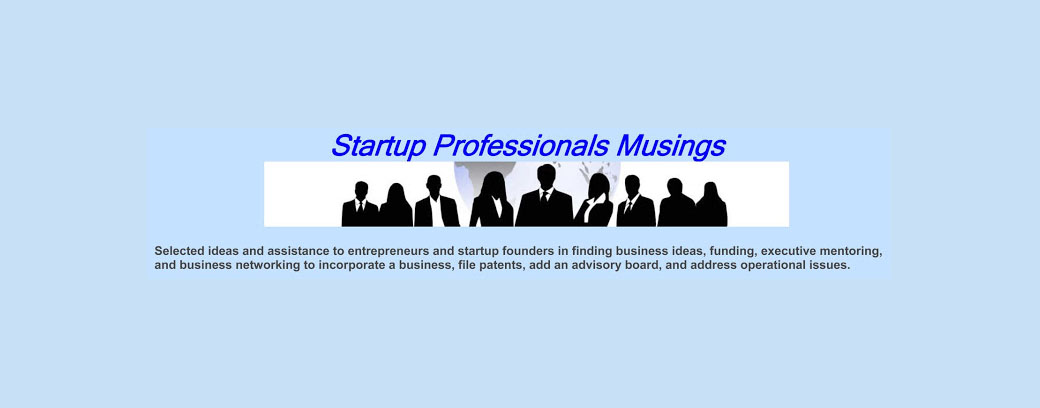How To Find The Best City For Your Type Of Startup


Even in this age of globalization and virtualization, the geographic area where you choose to live and work can still make or break your startup business. I still have to tell some entrepreneurs that even with the best idea, they have to move to Silicon Valley to find the investors they need, or they need to move to the U.S. get the attention of the market they choose.
For example, if you are working on a great social networking idea to replace Facebook, and need funding, you probably won’t find any interested and focused VCs or Angel investors in Phoenix, Arizona, where I live. Also, investors from the super-hubs (Silicon Valley, New York, or Boston), won’t assume anyone outside their domain has the savvy and resources to make it happen.
On the other hand, if you are into solar technologies, there is probably an advantage to being in Phoenix or a similar location. Having a great idea in the wrong place won’t get you the funding you need, the experienced domain experts you want, or the pilot market results you need for survival. You need to move to right location and get connected before you ask for help.
Of course, there are always exceptions, but how much added risk do you need for your startup? Maxwell Wessel, in a classic article in the Harvard Business Review on this subject, points out the exception successes of Zappos in Las Vegas, Sendgrid’s massive growth in Colorado, and RightNow’s $1.5 billion dollar sale to Oracle from Bozeman, Montana.
For your own startup location positioning, I recommend his four key questions that every entrepreneur should contemplate before resigning themselves to failure, or deciding where to move to improve their odds of success:
1. What’s your city’s advantage?
Today, Silicon Valley is the consumer and enterprise software capital of the world. Finance has homes in New York, Hong Kong, and London. Energy is still the domain of Houston and Dubai. The list goes on and on. Most cities have something that they are particularly good at. Find yours if you want to stay home.
2. How can you get exposure?
Finding talent and financing isn’t the only hurdle to overcome on the road to startup success. It’s just the first of many. Exposure is another key ingredient. Exposure to customers, incumbents, and competitors all drive success. Exposure instills the fear and urgency you need to deliver the right competitive solution.
3. What will set your business apart?
No one can tell you what to do to create your edge, but it is important that you figure out how you can. Being in the right location helps you to maintain pace because of access to skilled and experienced people. Being close to your customers, your vendors, or even your competitors can make all the difference.
4. Are you sure you can’t move?
Moving might not be easy. But it is one of the simplest things you can do to improve the odds that your business takes off. If you’re about to devote your professional life to building a business, and ready to sacrifice the blood, sweat, and tears it requires, seriously consider this question. It’s very important.
Wessel also summarizes the costs and potential impacts of creating and building your startup in secondary markets, usually meaning not in Silicon Valley or one of the other super-hubs:
- It takes longer to raise money. Raising capital isn’t the be all and end all of startup success. But it is an important metric for firms in pursuit of explosive growth. Raising capital is a necessary step, and survival time without it grows short, or interminably long. That extra two months spent traveling to fundraise is two months falling behind.
- It decreases your odds of being bought. When it comes to the technology ecosystem, clusters are vital. Wessel measures a 39% acquisition advantage to being in-state. Tech companies see engineers move frequently, integrate their products tightly, and often find themselves acquiring or merging with counterparts. Personal relationships do count.
- It decreases your odds of success. If you judge entrepreneurial success as surviving or selling (including raising follow-on funding, being bought, or successfully IPO’ing) as no doubt your investors do, then your odds of success are 10-15% higher inside the realm of the super-hubs. That’s not a big margin, but every little bit counts in this space.
But this measurable difference in outcomes, however significant, is not stopping aspiring entrepreneurs from building businesses where they live today. There are many good reasons to do so. Entrepreneurs cite family roots, a sense of neighborhood responsibility, existing professional networks, and more.
In fact, according to Wessel, following the recession, startups are mushrooming up everywhere. Since 2006, the number of startups founded and funded outside of California, Massachusetts, and New York, has grown by almost 65%. So don’t let location hold you back, but you need to go in with your eyes open. It takes more than a dream and passion to build a business.
As read on Startup Professionals Musings.
